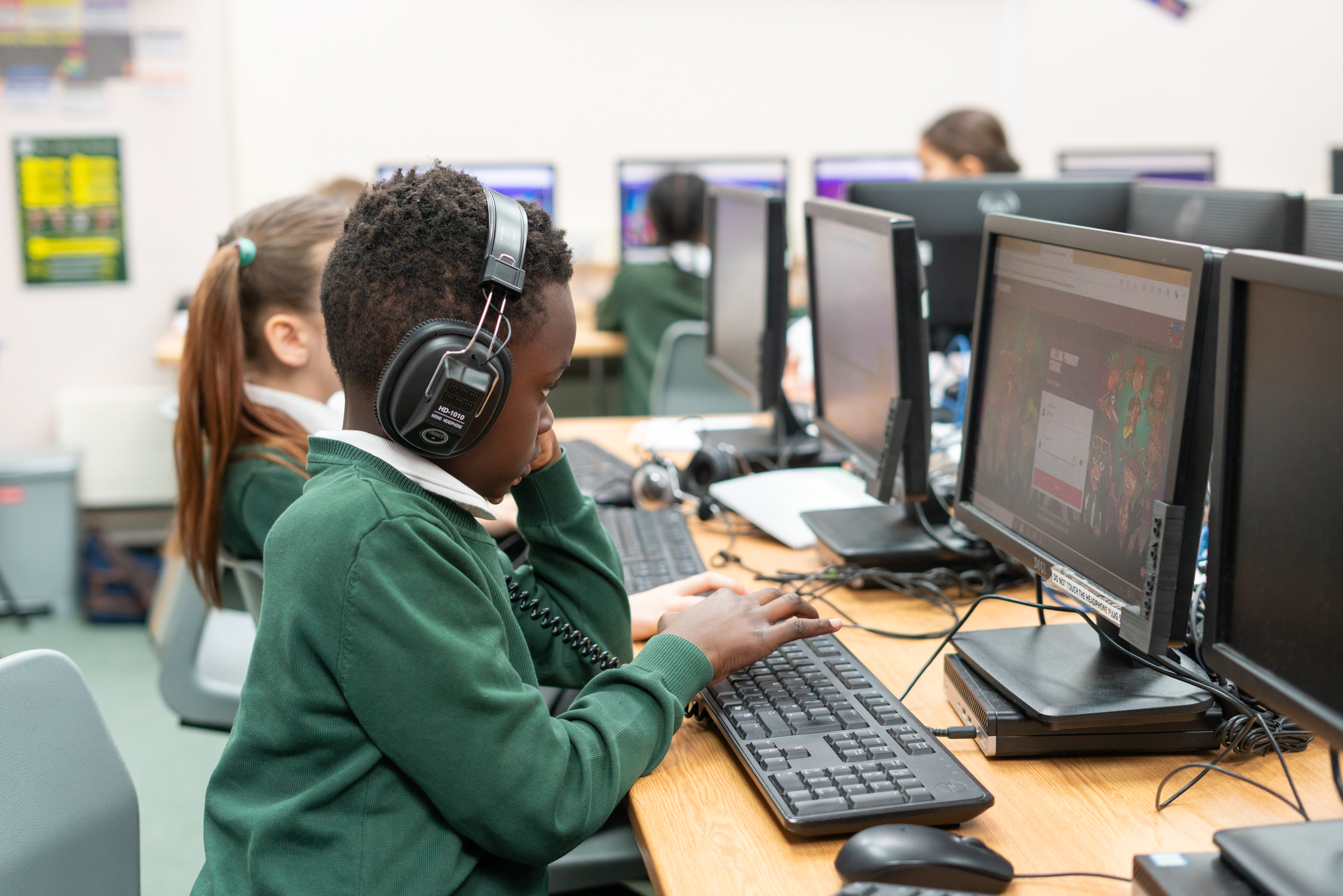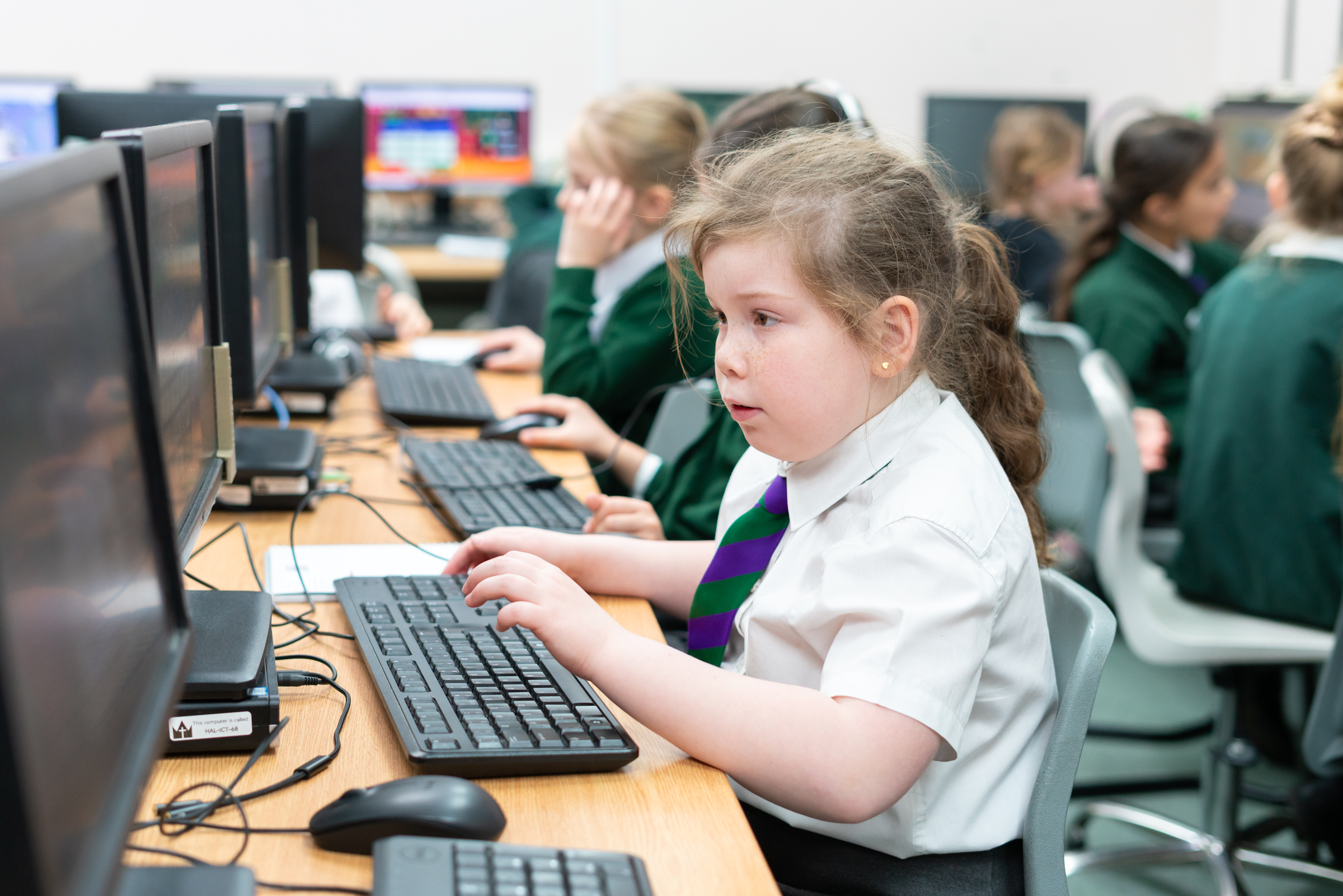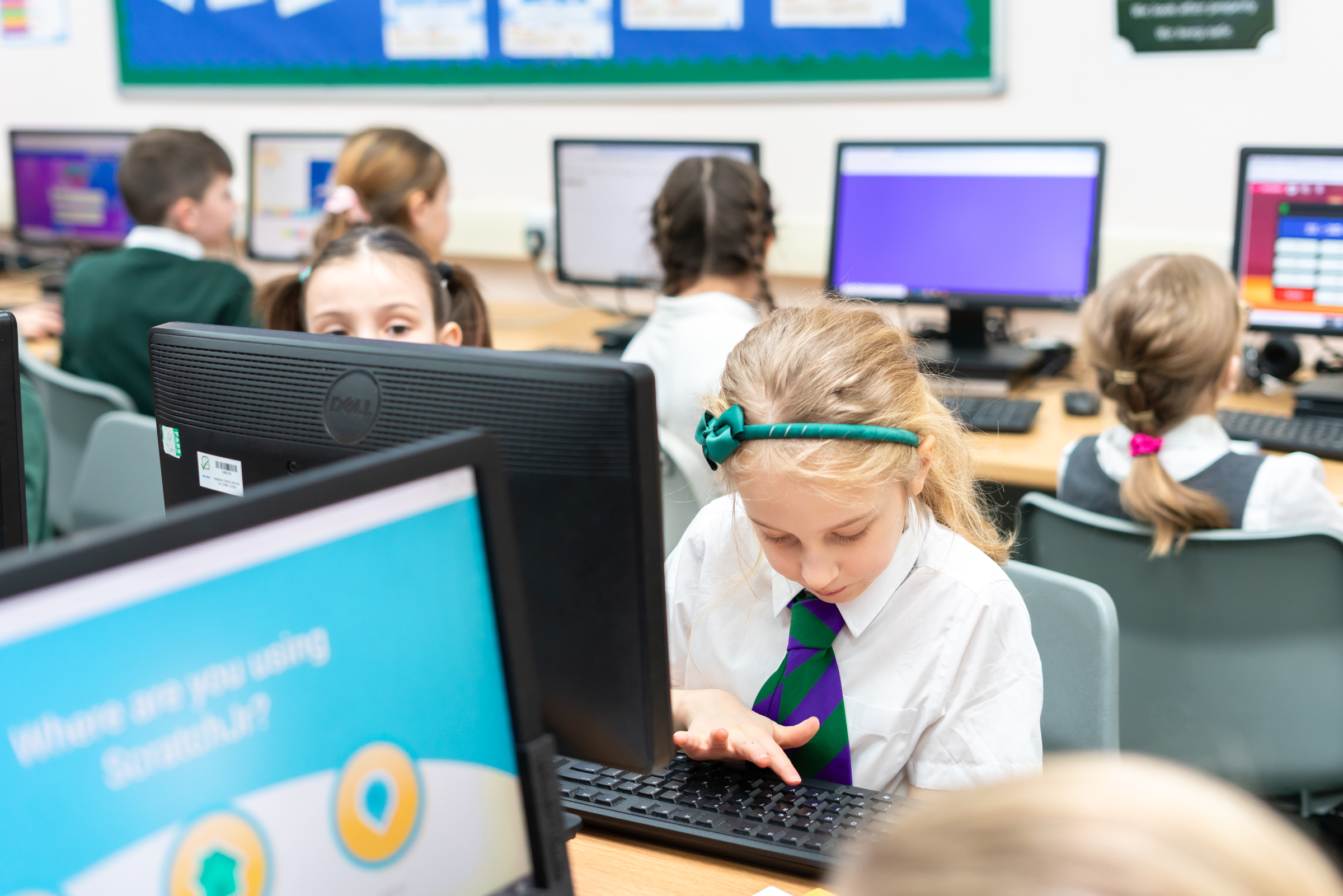Computing Subject Leader: Miss K Sullivan
With an ever-growing technological society, the demand for learning computing skills is essential to the education of pupils and opens pupils’ eyes to the digital world of computer science, information technology and digital literacy.
Intent
In line with the 2014 National Curriculum for Computing, our aim is to provide a high-quality computing education which equips children to use computational thinking and creativity to understand and change the world.
The curriculum will teach children key knowledge about how computers and computer systems work, and how they are designed and programmed. Learners will have the opportunity to gain an understanding of computational systems of all kinds, whether they include computers or other technology.
By the time they leave Halling, children will have had the opportunity to learn key knowledge and skills in the three main areas of the computing curriculum: computer science (programming and understanding how digital systems work), information technology (using computer systems to store, retrieve and send information) and digital literacy (evaluating digital content and using technology safely and respectfully).
The objectives within each area support the development of learning across the key stages, ensuring a solid grounding for future learning and beyond.


Implementation
At Halling Primary School, our curriculum is supported by the Teach Computing scheme of work. The pedagogy around this scheme is underpinned by 12 principles:
- Lead with concepts
- Work together
- Get hands-on
- Unplug, unpack, repack
- Model everything
- Foster program comprehension
- Create projects
- Add variety
- Challenge misconceptions
- Make concrete
- Structure lessons
- Read and explore the code first
Impact
Our approach to the curriculum results in a fun, engaging, and high-quality Computing education which also equips the children to cope with the demands of an increasingly digital world in secondary school, further education and future workplaces. The skills we teach should enable them to have up-to-date knowledge to help them relate to what is going on around them and use technology to improve their learning as well as give them the building blocks that enable them to pursue a wide range of interests and vocations in the next stage of their lives.

Computing in Each Stage
In EYFS, pupils will begin their computing education using the interactive whiteboard, touchscreens, and computers where appropriate, creating a foundation for the understanding of technology.
Children will learn to give simple instructions to small robots to make things happen. They will identify different devices that can go online, and separate those that do not. They will then begin to discuss and share how and when they use ICT in everyday life, with an emphasis on the children understanding the rules around e-safety and knowing who to tell if something concerns them online.
Children will understand what algorithms are, how they are implemented as programs on digital devices, and that programs execute by following a sequence of instructions. They will then use this knowledge to write and test their own programs. They will learn ways to communicate safely, respecting and considering other people’s feelings online. Year 2 children will be expected to be able to identify personal information that should be kept private and recognise common uses of ICT beyond school.
Children will be able to use logical reasoning to explain how a simple algorithm works and then use sequence, selection and repetition in programs. Children will become safer online as they learn to recognise online behaviours that would be unfair; think before sending messages and suggest consequences of sending/posting. Children will also use different approaches to search and retrieve digital information including the browser address bar and shortcuts. Children should also begin to demonstrate knowledge of computer systems and hardware by describing input and output devices used in everyday life.
By the end of year 4 children should be able to detect and correct errors in algorithms and programs (debug); test programs using models and simulations; design and write programs that accomplish specific goals, working with variables for input and output. They should also know who to tell if anything worries them online and begin to recognise social networking sites and social networking features built into other things (such as online games and handheld games consoles) whilst making judgements in order to stay safe whilst communicating with others online.
With support, children will begin to produce algorithms by using logical and appropriate structures to organise data and create precise and accurate sequences of instructions. They will use flowcharts and other diagrams to follow how a process or model works. Children will be able to articulate what constitutes good behaviour online and judge what sort of privacy settings might be relevant for reducing different risks. When using a search engine children should understand the need for accuracy when searching for and selecting information whilst using different sources to double check information found.
Children will produce algorithms independently using logical and appropriate structures to organise and record data. Using this knowledge, children will be able to design and create a range of programs to accomplish given goals. They will be able to discuss scenarios involving online risk and find, report and flag buttons in commonly used sites and name sources of help e.g. Childline and Cybermentors. Find a Click- CEOP button and explain to parents what it is for.
Computing Progression
SEND Information
Learning is adapted where necessary to support SEND/EAL pupils and to challenge more able pupils.
Computing Extra Resources
For more resources about online safety, please visit our resources page here.

